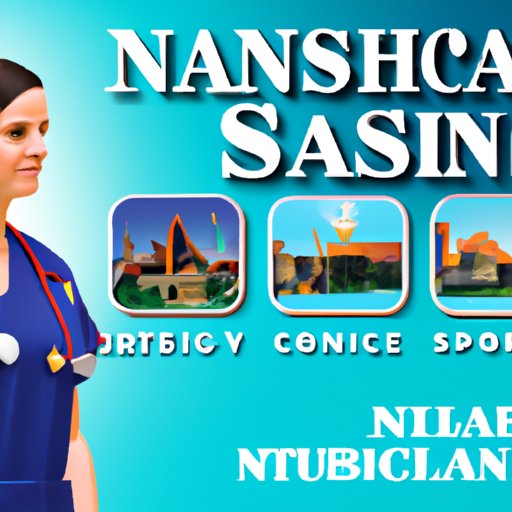Introduction
A Bachelor of Science in Nursing (BSN) is a four-year degree program that prepares students to become registered nurses (RNs). With a BSN degree, graduates have the knowledge and skills needed to work in a variety of healthcare settings, from hospitals to clinics to long-term care facilities. In this article, we will explore the role of a BSN-prepared nurse, the career outlook for those with a BSN degree, and the benefits of pursuing a BSN degree.

Career Outlook for a Bachelor of Science in Nursing
The demand for nurses is expected to grow significantly over the next decade, and those with a BSN degree are well positioned to take advantage of the many job opportunities available. According to the Bureau of Labor Statistics, RNs earned a median annual salary of $73,300 in 2019. However, those with a BSN degree may be able to command higher salaries, depending on their experience and location.
Exploring the Role of a BSN-Prepared Nurse
BSN-prepared nurses may work in a variety of healthcare settings, such as hospitals, clinics, long-term care facilities, and home health agencies. Depending on the setting, they may provide direct patient care, coordinate patient care plans, and manage patient records. They may also be responsible for teaching other healthcare professionals and providing leadership and support to other nursing staff.
What Skills Does a BSN-Prepared Nurse Need?
In addition to the technical skills required of all nurses, such as administering medications and performing diagnostic tests, BSN-prepared nurses must possess certain soft skills, such as critical thinking, communication, and problem-solving. These skills enable them to make sound decisions based on evidence and collaborate effectively with other healthcare professionals.

Benefits of Earning a BSN Degree
Earning a BSN degree can open the door to a variety of advanced nursing roles, such as nurse practitioner, nurse educator, and nurse manager. The additional education and experience can also help increase job security and career advancement opportunities. Finally, a BSN degree can give nurses the confidence and expertise needed to pursue leadership roles in healthcare.
How a BSN Degree Prepares Nurses for Leadership Roles
A BSN degree provides nurses with the knowledge and skills necessary to lead and manage teams of healthcare professionals. Through their coursework, BSN-prepared nurses develop problem-solving, decision-making, and critical thinking skills. They also gain an understanding of healthcare systems and policy, which can be invaluable when advocating for patients and leading improvement initiatives.
Conclusion
A Bachelor of Science in Nursing (BSN) degree can open the door to a variety of job opportunities and career advancement opportunities. BSN-prepared nurses are equipped with the technical and soft skills needed to provide quality patient care and lead teams of healthcare professionals. Pursuing a BSN degree can give nurses the confidence and expertise needed to succeed in the ever-evolving healthcare landscape.
(Note: Is this article not meeting your expectations? Do you have knowledge or insights to share? Unlock new opportunities and expand your reach by joining our authors team. Click Registration to join us and share your expertise with our readers.)
